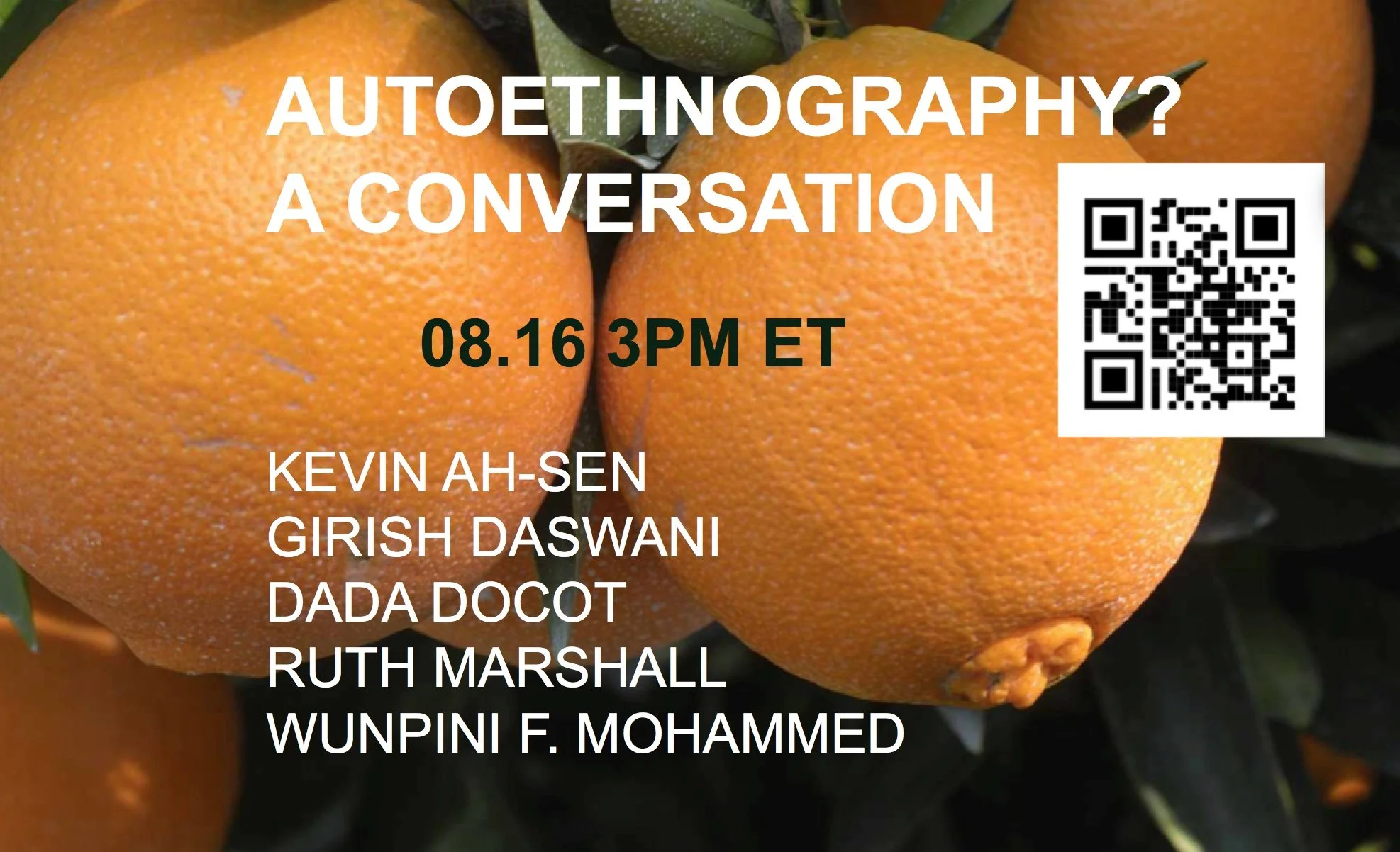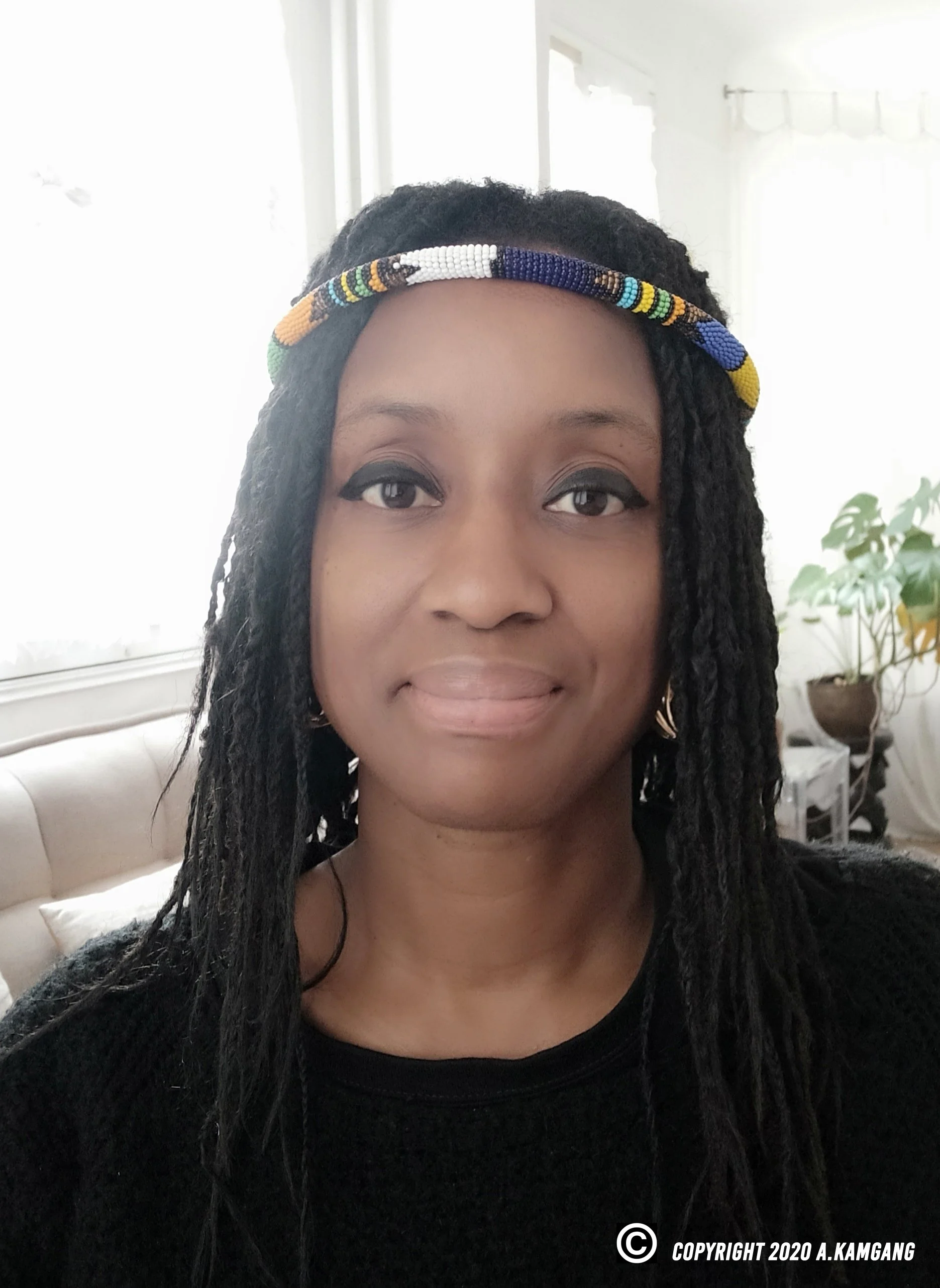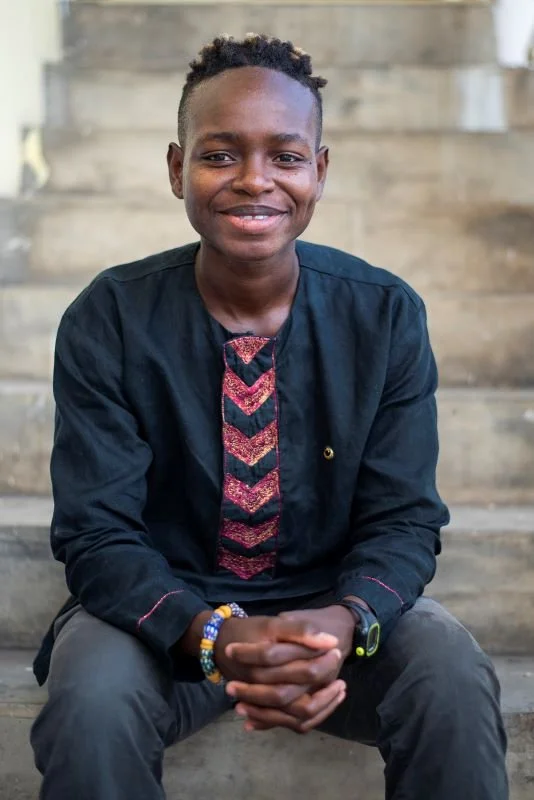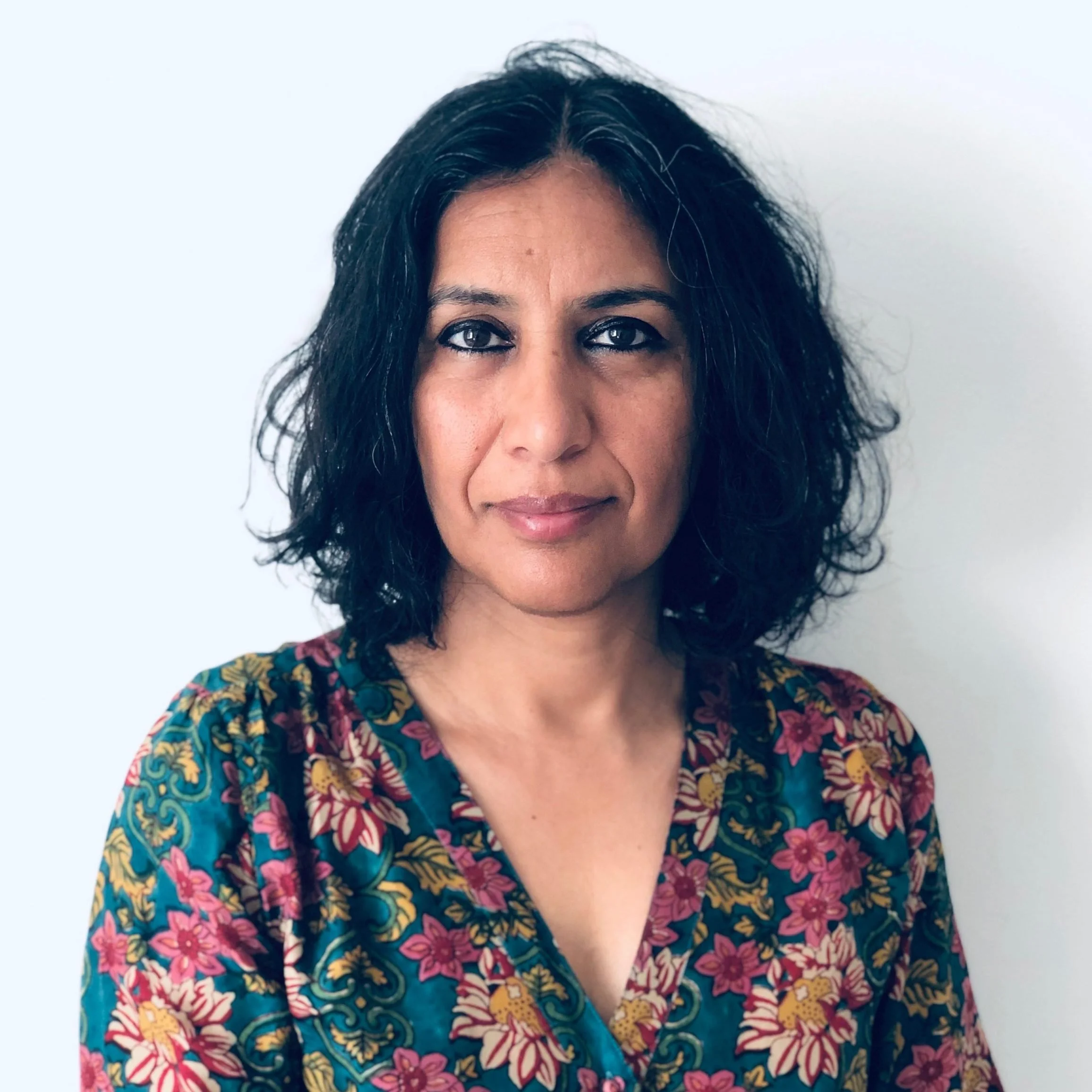The Scholar-Activist is a conversation with Dr. Anima Adjepong on how an academic navigates different roles: fieldworker, activist, collaborator, and social organizer.
Dr. Anima Adjepong (they/them) is a sociologist, critical race, gender, and sexualities scholar. Their primary focus is Ghanaian cultural politics and social justice efforts across the African diaspora. Dr. Adjepong is an Assistant Professor of Women's Gender and Sexualities Studies at the University of Cincinnati and a member of Silent Majority Ghana as well as actively involved in transnational queer feminist activism.
Their book "Afropolitan Projects: Redefining Blackness, Sexualities, and Culture from Houston to Accra" has been published by the University of North Carolina Press (2021).
The Scholar-Activist Panel
Introduce your brand
This panel discusses the practice of authoethnography in which personal experiences are interjected into ethnographic writing. Autoethnography is a useful approach that acknowledges and accommodates one’s positionality, subjectivity, emotionality, and the researcher's relations to and influence on research. It has been particularly useful for those who come from or work with members of their own communities or countries. However, autoethnography has also been used to express the fantasies of White/Global North ethnographers and to speak about and on behalf of non-White academics (i.e the Global South/Majority). When and how does autoethnography become a conduit for coloniality and the centering of Whiteness or indulging in one's own fantasy of otherness/self? In what contexts is autoethnography doable and appropriate?
Click on the yellow button to watch the conversation!
Some recommended readings:
Adjepong, Anima. 2022. Afropolitan Projects: Redefining Blackness, Sexualities, and Culture from Houston to Accra. University of North Carolina Press.
Ahmed, Sara. 2007. “A Phenomenology of Whiteness”. Feminist Theory 8:2, 149-68.
CLEAR Lab: For resources on research methodologies that foreground values of humility, equity, and good land relations.
Daswani, Girish. 2021. The Im/Possibility of Decolonizing Anthropology. Everyday Orientalism/CLEAR.
Docot, Dada. 2017. “Negative Productions During Fieldwork in the Hometown”. GeoHumanities, 3:2, 307-32.
hooks, bell. 1990. yearning: race, gender, and cultural politics. Routledge.
hooks, bell. 1992. “Eating the other: Desire and resistance” In Black Looks: Race and Representation, pp. 21–39. South End Press.
Khosravi, Shahram. 2010. ‘Illega'l’ Traveller: An Auto-Ethnography of Borders. Palgrave-Macmillan. Alternatively see paper (2008).
Liboiron, Max. 2021. Pollution is Colonialism. Duke University Press.
Marshall, Ruth. 2014. “Christianity, Anthropology, Politics”. Current Anthropology 55, 344-56.
Meneley, Anne; Donna Young (eds). 2005. Auto-Ethnographies: The Anthropology of Ethnographic Practices. University of Toronto.
Mohammed, Wunpini F. 2021. “Bilchiinsi philosophy: decolonizing methodologies in media studies”. Review of Communication 22:1, 7-24.
Smith, Linda Tuhiwai. 2012. Decolonizing Methodologies: Research and Indigenous Peoples (Second Edition). Zed Books.
Stewart, Nicole; Rahman, Anis; Addams, Phillipa R.; John Hughes. 2021. “Same storm, different nightmares: emergency remote teaching by contingent communication instructors during the pandemic”. Communication Education 70:4, 402-40.
Tuck, Eve. 2009. “Suspending Damage: A Letter to Communities”. Harvard Educational Review 79:3, 409-27.
Wynter, Sylvia. 2003. “Unsettling the Coloniality of Being/Power/Truth/Freedom: Towards the Human, After Man, Its Overrepresentation-An Argument”. The New Centennial Review 3:3, 257-337.
Political Cartoons Panel [24/03/22]
‘Dis No Be Funny’: Artivism and Afro-Asian (Dis)Connections
Description
The panel discussion brings together talented cartoonists who work in the African continent and in Asia, including Singapore, Ghana, and Cameroon. These political and satirical cartoonists (Sonny Liew, Bright Ackwerh, Annick Kamgang) discuss their work, it’s connections to their own political environments, and how they are responding to recent post-colonial and global trends.
What can these artistic interventions tell us about the “unfolding of the story of both decolonization and capital” (Watson 2021: 183) as well as the (re) imagining of earlier decolonizing histories, anti-democratic political trends, and capitalism?
How do they deal multiple forms of censorship (George and Liew 2021), and what do they tell us of the geo-political roles played by global powers such as the US and China (Oduro-Frimpong 2021)? In other words, what do political cartoons and other artistic productions teach us about Africa, Asia and Afro-Asian (dis)connections?
This panel was chaired by Prof Jini Kim Watson (NYU), author of "Cold War Reckonings: Authoritarianism and the Genres of Decolonization" (2021), and co-organized by Girish Daswani (Human Stories / UofT), Cherian George (Hong Kong Baptist University), and Joseph Oduro-Frimpong (Ashesi University).
Panelists
Bright Ackwerh
Bright Ackwerh, born 1989 is an artist from Ghana. He is a product of the Kwame Nkrumah University of Science and Technology where he earned a BFA and MFA in painting and sculpture. His practice is situated in the field of painting, illustration and street art. He was the recipient of the Kuenyehia prize for Ghanaian Contemporary Art for 2016, an honour conferred on him by a jury led by professor emeritus El Anatsui. Bright’s work had been gaining critical acclaim on social media, a strategy he employed to question the limiting spaces available for displaying his art and engaging a young art audience in his hometown of Ghana. Bright Ackwerh’s practice has been heavily influenced by Ghanaian artist duo FOKN BOIS and the work of Nigerian activist and musician Fela Kuti in how they have made social commentary and has recently been centered on investigating pop culture as a medium which he also explores as public poster making.
His work has been shown in group exhibitions in Ghana and abroad including ‘Cornfields in Accra’ in 2016, ‘Orderly Disorderly’ in 2017 and his first solo ‘Where De Cho Dey’ in 2018. He has also been involved in organizing art workshops in the northern region of Ghana, collaboration with some development agencies based in Tamale.
Annick Kamgang
I am Annick Kamgang, or KAM. I would define myself as an artivist (artist and activist). I express myself with political cartoons, graphic novels and illustrations. I was born and raised between Central Africa and the French West Indies : during the eighties in Cameroon and CAR (Central African Republic), the country of Bokassa, an African despot. And during the nineties I was raised in Maryse Condé and Aimé Césaire's lands.
In 1991, a revolution occurred in many French-speaking African countries, people fought for more freedom. My father took part in it, he became an activist after losing his job, because he wrote an article which was supporting this revolution in Jeune Afrique, a famous Pan-African newspaper. The article was illustrated by a cartoon of Plantu, a famous french political cartoonist. Then my father decided to create UPA (Union of the People of Africa), a panafricanist political party, and he spent the rest of his life defending panafricanism in Cameroon.
My first graphic novel "Lucha" done with Justine Brabant, was released on April 2018 at La Boîte à bulles Editions, in collaboration with Amnesty International.
"Lucha" is the story of human rights activists in Democratic Republic of the Congo.
Sonny Liew
Sonny Liew’s multi-Eisner Award winning The Art of Charlie Chan Hock Chye was a New York Times and Amazon bestseller, and the first graphic novel to win the Singapore Literature Prize. Other works include The Shadow Hero (with Gene Luen Yang), Doctor Fate (with Paul Levitz) and Malinky Robot, as well as titles for Marvel Comics, DC Comics, DC Vertigo, Boom Studios and Disney Press.
Chair
Jini Kim Watson
Jini Kim Watson is Associate Professor of English and Comparative Literature at New York University. Her research and teaching focus on decolonization, the global Cold War, urbanism, and political modernity in the Asia Pacific. She is the author of Cold War Reckonings: Authoritarianism and the Genres of Decolonization (Fordham UP, 2021), and The New Asian City: Three-dimensional Fictions of Space and Urban Form (Minnesota UP, 2011). She has also co-edited, with Gary Wilder, the collected volume, The Postcolonial Contemporary: Political Imaginaries for the Global Present (Fordham UP, 2018).
Selected Readings:
Jini Kim Watson 2021. “Cold War Reckonings: Authoritarianism and the Genres of Decolonization” Fordham University Press.
Cherian George and Sonny Liew 2021. “Political Cartoons and the Struggle Against Censorship” MIT Press.
Sonny Liew 2016. “The Art of Charlie Chan Hock Chye” Penguin Random House.
Annick Kamgang and Justine Brabant 2018. “Lucha : chronique d'une révolution sans armes au Congo” Boîte a Bulles.
Joseph Oduro-Frimpong 2021. “We Dey Beg”: Visual Satirical Media Discourses on Contemporary Ghana-Sino Relations. Journal of African Cultural Studies.
Girish Daswani 2020. “On Cynicism: Activist and Artistic Responses to Corruption in Ghana.” Cultural Anthropology.
Far-Right Transnational Connections Panel [07/02/22]
Description
This panel, which is co-hosted by Human Stories and Every Orientalism, focuses on the increasingly interconnected routes through which far-right populist ideas, iconography, and ideology are facilitated and deployed to growing numbers of people across the world. Recently, the January 6th insurrection in the United States, increasing support for white nationalist politicians across Europe, anti-LGBTQ legislation in Africa, and populist politics in Asia has exposed the need to better understand how right-wing extremist discourse transcends borders. Increasingly, this discourse has become intertwined within localized expressions of alternative politics, to form new assemblages of political expression that have then been leveraged by populist politicians across the globe to secure political support.
In relation to these trends, this panel is interested in exploring how this transfer of information is connected to overt expressions and increasingly blatant displays of defiance against the political status quo, in addition to more covert or disguised attempts to “launder” extremist tropes into mainstream political discourse. In an era of memes, online conspiracy theories, and social media platforms that connect millions of users from around the world it has never been easier for these extremist ideas and thought to find traction in the mainstream of public discourse from seemingly innocuous sources.
While many facets of these discourses leverage rhetorical tropes from earlier hate and conspiracy theory literature, others utilize these contemporary media channels to create content that is more palatable to mainstream audiences. This panel seeks to explore this phenomenon through a critical and engaged discussion of the transnational dimension of far-right ideologies from contributors of diverse academic and activist backgrounds.
Panelists:
Anima Adjepong
Anima Adjepong (@animaadjepong) is on the faculty at the University of Cincinnati as an Assistant Professor of Women's, Gender, and Sexualities Studies. They research, write, and teach about identity, culture, and social change and are particularly interested in how cultural struggles can bring about social transformation.
Melody Devries
Melody Devries (@melodeV) is a PhD candidate in the Communication and Culture Department at Ryerson University. Building from a Masters degree in anthropology, Devries uses digital ethnographic methods to examine how far-right and conspiratorial politics become compelling through everyday practices, with a specific focus on how the Christian Right helps mainstream far-right politics. She has recently published with the Canadian Journal of Communication (March 2022), acted as lead editor for Rise of the Far-Right: Technologies of Recruitment and Mobilization (2021), and contributed to the SSRC Items series Beyond Disinformation.
Rebecca Futo Kennedy
Rebecca Futo Kennedy (@kataplexis) is Associate Professor of Classical Studies at Denison University. Her teaching and research focus on Greek and Latin languages, tragedy, history and historiography, ancient democracy, citizenship and immigration and their intersection with race, ethnicity and gender, and modern racialized engagements with antiquity. She is the author of two monographs: Athena’s Justice (2009) and Immigrant Women in Athens (2014). She is currently completing a book on race and ethnicity in the ancient world and its modern politics for Johns Hopkins University Press, a new sourcebook on women in Greek and Roman contexts as well as a short historiography on how the ancient Greeks and Roman came to be racialized as “White” in US popular and academic contexts in the 19th-20th centuries for Brill's Research Perspectives in Ancient History series. Her blog "Classics at the Intersections" can be found at https://rfkclassics.blogspot.com/.
Ravinder Kaur
Ravinder Kaur is a historian of contemporary India. She is Associate Professor of Modern South Asian Studies and the Director of the Centre of Global South Asian Studies at the University of Copenhagen. Her core research focuses on the processes of capitalist transformations in twenty-first-century India. This is the subject of her most recent book "Brand New Nation: Capitalist Dreams and Nationalist Designs in Twenty-First-Century India" (Stanford University Press, 2020). This work was selected as the “Financial Times Best Book of the Year” in 2020 and longlisted for the “Kamaladevi Chattopadhyay NIF Book Prize” in 2021. She is also the author of Since 1947: Partition Narratives among the Punjabi Migrants of Delhi (Oxford University Press, 2007; 2nd edition, 2018).
Chair
Cherian George
Cherian George (@cheriangeorge) is professor of media studies at Hong Kong Baptist University’s School of Communication and Film, where he also serves as associate dean for research. He researches media freedom, censorship and hate propaganda. His books include Hate Spin: The Manufacture of Religious Offense and its Threat to Democracy (MIT Press, 2016). He received his Ph.D. in Communication from Stanford University. Before joining academia, he was a journalist with The Straits Times in Singapore.
Questions asked during the Panel:
How has Religion (Evangelical Christianity / Hinduism) played an important role in the work of the Far Right and ultra-nationalists?
What effect do Nazi/white supremacist groups/books and their ideology have on groups in India like the RSS?
How do you protect yourself from the psychological and other consequences of studying the topics and groups you research?
Do you have any particular suggestions of “everyday” ways forward for academics, teachers, students, and everyone else who might watch this panel and be willing to disrupt the normalization of these far-right movements?
How do you think academics deal with the mainstream right talking points?
Selected Readings (including those shared during the panel):
Chibuihe Obi Achimba 2021. The New Anti-Gay Bill Proposed in Ghana Will Destroy Lives, Foreign Policy.
Anima Adjepong 2021. “The battle is the Lord’s: Christian nationalism and the fight for gender and sexual justice“, UNC Press Blog.
M. Jacqui Alexander 2006. Pedagogies of Crossing.
Maurizio Bettini 2012. Against Roots: Tradition, Identity, Memory
Ewan Birney, Michael Inouye, Jennifer Raff, Adam Rutherford, and Aylwyn Scally 2021, The language of race, ethnicity, and ancestry in human genetics research, Cornell University’s arXiv:2106.10041.
Katherine Blouin 2018, “Civilization: What’s up with that?” Everyday Orientalism.
Sarah Bond 2018, This is Not Sparta, Eidolon.
Anthea Butler. White Evangelical Racism.
Girish Daswani 2022. Ghana’s Crackdown on LGBTQ+ has a (Neo)Colonial and Christian Face.
Melody DeVries 2022. “Startling Trump interference points to GoFundMe convoy campaign manipulation“, Canada’s National Observer.
Melody Devries 2021. “Mobilized but not (yet) recruited: The case of the Collective Avatar”, Rise of the Far Right: Technologies of Recruitment and Mobilization, Melody Devries, Judith Bessant and Rob Watts eds. London, 237-260.
Curtis Dozier’s PHAROS: Doing Justice to the Classics project.
Rebecca Futo Kennedy 2017, We condone it by our silence, Eidolon.
Cherian George, 2016, Hate Spin: The Manufacture of Religious Offence and its Threat to Democracy.
Madeleine Johnson 2019, Defenders of the faith? Extremism in Classical Christian education, Eidolon.
Ravinder Kaur 2020. Brand New Nation: Capitalist Dreams and Nationalist Designs in Twenty-First-Century India.
Ravinder Kaur 2020. Who owns the Republic, Outlook India, 23.01.2020.
Morgan Keith 2021. “From transphobia to Ted Kaczynski: How TikTok’s algorithm enables far-right self-radicalization“, Business Insider.
Ana-Maurine Lara 2020. Queer Freedom: Black Sovereignty.
Lepage Center’s 2021 Roundtable on “White Supremacy and Classical Athens: A Turning Point?” (with Curtis Dozier, Rebecca Futo Kennedy, and Jackie Murray) (podcast).
Olivia Little and Abbey Richards 2021. “TikTok’s algorithm leads users from transphobic videos to far-right rabbit holes“, Media Matters.
Naoíse Mac Sweeney et al. 2019. Claiming the Classical: The Greco-Roman world in contemporary discourses, Council of University Classical Departments Bulletin 48.
Kyle T. Mays. 2021. An Afro-Indigenous History of the United States.
Denise McCoskey 2018, Bad to the Bone: The racist application of DNA science to Classical Antiquity, Eidolon.
Silent Majority Ghana: https://www.silentmajorityghana.com/
Jen Schradie 2019. The Revolution That Wasn’t: How Digital Activism Favors Conservatives.
Introduce your brand
This panel discusses the practice of authoethnography in which personal experiences are interjected into ethnographic writing. Autoethnography is a useful approach that acknowledges and accommodates one’s positionality, subjectivity, emotionality, and the researcher's relations to and influence on research. It has been particularly useful for those who come from or work with members of their own communities or countries. However, autoethnography has also been used to express the fantasies of White/Global North ethnographers and (using Black feminist and anti-colonial theories) to speak on behalf of non-White academics (i.e the Global South/Majority). When and how does autoethnography become a conduit for coloniality and the centering of Whiteness or indulging in one's own fantasy of otherness/self? In what contexts is autoethnography doable and appropriate?
Click on the button below to listen to the conversation!











